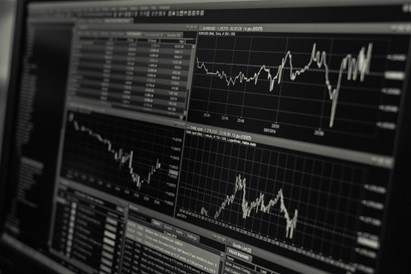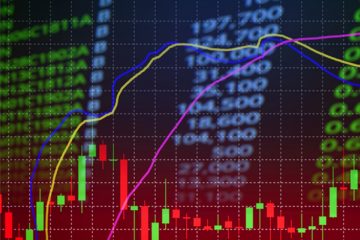The Future Of Finance: From Our Wallets To Our Transactions, Everything Is Evolving, Fast

In the real world, everything changes. Time and tide wait for nobody, as the saying roughly goes. That is true of almost everything: evolution continues and change is almost as guaranteed as paying taxes. And talking of taxes, the financial world is changing too. Of course, some things stay the same, such as money being a motivator to succeed, or the purchasing power of a cash buyer in the real estate market, for example – but other things are changing faster than most of us realize.
And that change makes it necessary for us to constantly adapt, which most of us do from day to day without even realizing it. Just take a moment to think of a few things that our technologically advancing financial world now allows you to do – things that would have been impossible just a few years ago.
What about things like trading stocks and shares virtually? Purchasing things with cryptocurrencies? Or, for the gambling fans out there, hitting the online casinos and having the chance to win huge jackpots without ever leaving your couch – it’s pretty mind-boggling, actually. From almost anywhere in the world, with nothing more than a cell phone, a person can join a poker game with international players, try their hand at roulette, learn the rules of blackjack, play online slots for real money in Canada, or check out the latest betting odds for their favorite sports team. The internet has made all of these things possible with just a click or two of a button, and that’s astonishing.
With all that in mind, it’s not surprising many people are fascinated about where the financial world will go in the future. It’s not just accessibility that’s changing either – the evolution is coming in how we spend, where we can spend, what currencies we can use, what devices we can use, and even what kind of wallets we need to house, for example, a new digital currency. So what about the future of finance? I have no crystal ball, but I can certainly look at where things are and what direction looks likely.
Digital Currencies, Digital Wallets, Digital Financial Future…
When I was much younger, it was a coming of age, a rite of passage, to get my first leather wallet. Putting what little money I had as a student in there, alongside my first bank account card, felt grown up and sophisticated. Though I and many of my age and older still cherish our traditional, sometimes battered old wallets, there will be many in Generation Z, and even Millennials, who see the word “wallet” in purely digital terms. Even I have a “wallet” on my phone, making my physical wallet an option these days, rather than a necessity.
With digital wallets and even cryptocurrency wallets now more ubiquitous than ever, forecasts are showing that over half of all personal financial transactions are already made digitally, with contactless or online payment wallets, with over 9 trillion US dollars a year in transactional value. In any currency, that is vast. This digital culture is on the rise, and is becoming ever more dominant.
Though cash is still globally relevant as a transactional form of payment, the financial future is clearly based on the advancement of digital currency and digital payment transactional capabilities. With every new tech comes a new way to pay, each advertised as more seamless than the last. We even have contactless payment rings, making a digital wallet even less important for some – such is the rapidity of the change within the digital financial landscape.
Cybersecurity Enabling A More Digitally Secure Financial Sector
Part of the reason our financial future is increasingly digital is the existence and ever-evolving sophistication of cybersecurity. Whenever we make any digital transaction, be that online, in person, or through any contactless process relying on encrypted technology, we generally assume that it is safe, protected, and beyond the reach of nefarious digital scammers or online thieves.
Naturally, criminals in the digital realm are also becoming more sophisticated, which is why cybersecurity developers and companies are striving to stay one step ahead, delivering customer confidence within the digital financial world, both domestic and commercial. With the ubiquity of NFC payments, online transactions, and digital currencies, all now arguably mainstream, cybersecurity is necessary to keep money secure – and given the sophisticated cybersecurity trends that are constantly appearing, this is more critical than ever.
Though there are examples of breaches, hacks, etc., based on the millions of digitally secure transactions made globally each day, cybersecurity is both reliable and constantly advancing.
In conclusion, I would say that the financial future is very much digitally driven. In another article, we can discuss the global financial markets, fiscal trajectories, and even the proposals by some governments for central digital bank currencies, but that is for another time. What I will say is that our digital financial future is evolving and is doing so at a speed that even the most optimistic fiscal experts say is incredible.



